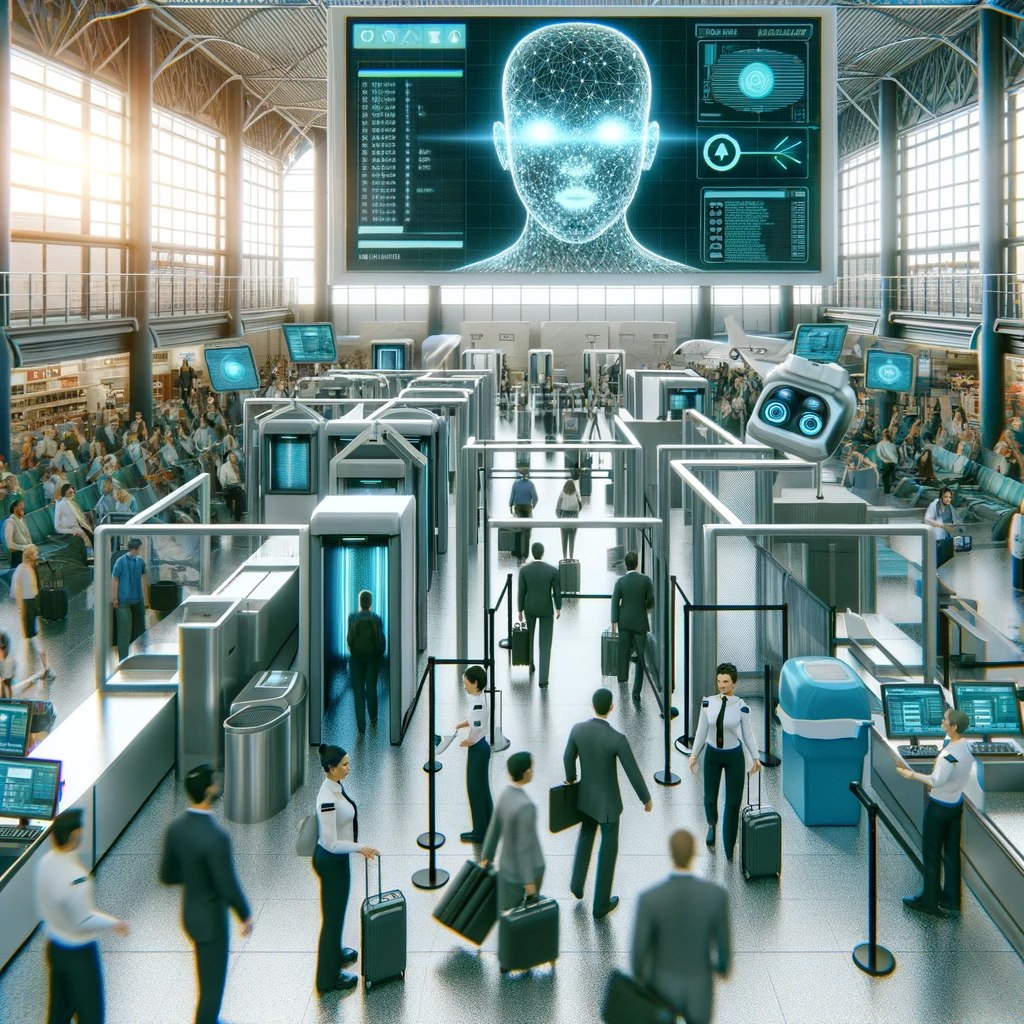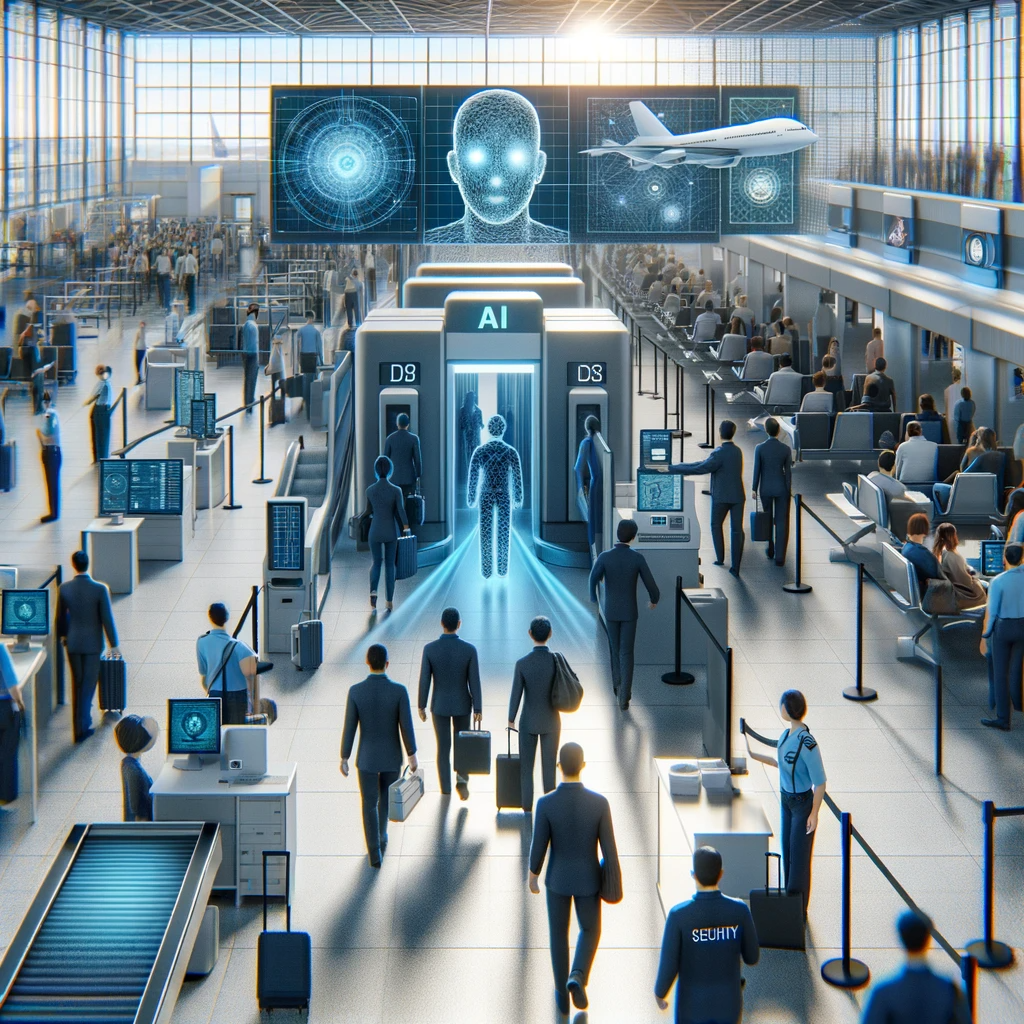The advent of artificial intelligence (AI) has revolutionized numerous industries, and one area where its impact is particularly significant is airport security and passenger screening. Ensuring the safety and security of air travelers is a paramount concern for airports worldwide. However, the need for robust security measures must be balanced with the equally essential principles of passenger privacy and efficiency.
This article delves into the fascinating realm of AI-powered airport security and passenger screening. It explores how AI technologies are being harnessed to enhance the efficiency of airport security operations while safeguarding the privacy and safety of passengers. We will embark on a journey through the evolution of airport security, the pivotal role of AI, privacy concerns, the passenger experience, and the delicate balance between security and privacy.
Join us as we navigate the innovative landscape of AI-driven airport security, shedding light on the technologies, challenges, and ethical considerations that shape the future of air travel safety.
Evolution of Airport Security
Airport security has come a long way since the early days of commercial air travel. In the past, security measures were relatively rudimentary, focusing on manual checks and physical inspections. However, as air travel became more accessible and the threats to aviation evolved, the need for more sophisticated security measures became apparent.
The tragic events of September 11, 2001, marked a turning point in airport security. In response to the terrorist attacks, airports worldwide implemented stringent security measures, including enhanced passenger and baggage screening, air marshal programs, and reinforced cockpit doors. While these measures significantly improved security, they also led to longer wait times, increased passenger frustration, and concerns about the invasion of privacy.
The Role of AI in Airport Security
To address these challenges and maintain a high level of security, airports have turned to AI technologies. AI offers a unique set of capabilities that are well-suited to enhancing airport security:
- Threat Detection: AI-powered algorithms can analyze data from various sources, such as passenger manifests, watchlists, and security cameras, to identify potential threats. These algorithms can detect suspicious behavior, objects, or individuals, alerting security personnel in real-time.
- Risk Assessment: AI can perform sophisticated risk assessments by analyzing passenger data, including travel history and behavior patterns. This helps security personnel focus their attention on passengers who pose a higher risk.
- Speed and Accuracy: AI systems can process large volumes of data quickly and accurately, reducing wait times for passengers and enhancing the overall efficiency of security screening.

AI-Powered Screening Technologies
AI has led to significant advancements in passenger screening technologies. One of the most notable developments is the use of facial recognition and biometric authentication. These technologies enable passengers to move through various checkpoints, from check-in to boarding, without needing to show physical identification repeatedly.
Facial recognition systems compare a passenger’s facial features to a database of known individuals, allowing for secure and efficient identification. Biometric authentication, such as fingerprint or iris scans, offers additional layers of security.
Additionally, machine learning algorithms are employed to analyze passengers’ behavior, identifying signs of nervousness or suspicious activity. These algorithms can be integrated with security camera systems to provide real-time alerts to security personnel.
AI also plays a vital role in baggage screening. Automated baggage scanning systems use AI algorithms to detect prohibited items, such as weapons or explosives, in checked luggage. This not only enhances security but also reduces the need for manual inspections, expediting the baggage handling process.
As we delve deeper into this article, we will explore specific AI technologies and their applications in airport security and passenger screening. We will also examine their impact on passenger experience, the challenges related to privacy, and the future trends and innovations in this dynamic field.
Privacy Concerns and Ethical Considerations
While AI-driven airport security systems offer numerous advantages, they also raise significant privacy concerns and ethical considerations. Balancing the need for enhanced security with respect for passengers’ privacy is a delicate task that requires careful consideration.
Invasive Surveillance: The use of facial recognition and biometric scanning technologies has sparked debates about the extent of surveillance at airports. Critics argue that constant monitoring of passengers’ faces and biometric data could lead to a surveillance state and compromise personal privacy.
Data Security: The collection and storage of biometric data raise questions about data security. Ensuring that sensitive information is adequately protected from potential breaches is a critical concern.
Consent and Opt-Out Options: Passengers should have the option to consent to or opt out of biometric screening. Clear and transparent procedures for obtaining consent and providing alternatives are essential to respect individual rights.
Algorithm Bias: AI algorithms used for threat detection may exhibit biases, leading to profiling or discrimination. It is crucial to regularly audit and fine-tune these algorithms to minimize bias and ensure fair treatment.
Public Perception: Public perception of AI-powered security measures plays a significant role in their acceptance. Public education and awareness campaigns are essential to address concerns and build trust.
- Enhancing the Passenger Experience
AI’s impact on airport security goes beyond just ensuring safety; it also contributes to enhancing the passenger experience. Here are some ways AI improves the journey for travelers:
- Faster Check-In: Facial recognition and biometric authentication enable expedited check-in processes, reducing wait times and lines at the airport.
- Predictive Analytics: AI can provide passengers with real-time updates on flight delays, gate changes, and baggage status, improving overall travel convenience.
- Security Pre-Clearance: AI-driven risk assessments can identify low-risk passengers, allowing them to undergo expedited security screening, further reducing wait times.
- Personalized Services: AI can personalize the passenger experience by offering tailored recommendations for airport amenities, dining options, and retail choices.
- Language Translation: AI-powered translation tools assist international travelers by providing real-time language translation services.
The Future of AI in Airport Security
The future of AI in airport security promises even more innovation and efficiency. Anticipated developments include:
- Predictive Analysis: AI will continue to improve its ability to predict security threats based on data analysis, allowing for proactive measures.
- Behavioral Analytics: AI will become more adept at analyzing passengers’ behavior patterns, helping identify potential threats more accurately.
- Biometric Expansion: Wider adoption of biometric identification methods, such as palm prints and voice recognition, will further streamline passenger screening.
- Autonomous Security Robots: AI-powered robots equipped with sensors and cameras will patrol airport terminals, enhancing security and providing assistance to passengers.
- Collaboration: Airports worldwide will collaborate to share data and insights, creating a global network of AI-driven security intelligence.

Conclusion
The integration of AI into airport security and passenger screening represents a transformative shift in the aviation industry. While it offers unprecedented efficiency and security enhancements, it also raises complex ethical and privacy considerations. Striking the right balance between safety and privacy is crucial as we continue to embrace AI technologies in the realm of air travel.
As we conclude this article, we reflect on the profound impact that AI has had on airport security and the ongoing efforts to create a seamless, secure, and respectful experience for passengers worldwide. The future holds exciting prospects for AI-driven innovations that will shape the way we travel by air, providing both enhanced security and a more enjoyable journey for all.

